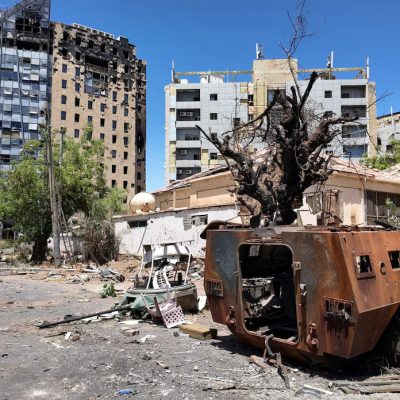The Gulf region has witnessed a number of important developments in the recent period. Some of these developments are directly related to the Iran-US crisis, while others are not directly related to this crisis. These developments have important implications, both in terms of the possible course of the crisis over the next few years, and in relation to US-Gulf relations in general.
Goals in South Yemen
The port of Aden and various economic resources in the south are very important. Aden is not just a foothold for the UAE, but a major area of influence that enables it build a global bridge linking Aden to the southern African continent, which could re-secure the UAE’s strong presence in Somalia, which also achieves full control over Bab al-Mandab, which is of great interest to Egypt. The longer in their favor.I assume that UAE also seeks to form a geographic scope in southern Yemen with official political authority consistent with its foreign orientations towards the file of Iran and political Islam, and the intellectual ground on which the South Yemen state was founded is the leftist Arab nationalism, which rejects the existence of any intellectual Religious formations in the rule of the state such as political Islam, thus forming a common ground between the state of the South and the UAE.I think that Iran regards Syria and Lebanon as its northern bridge to the Mediterranean Sea, and Yemen considers its southern bridge to the Red Sea. Thus, South Yemen will also be a geopolitical wall blocking Iran, by impeding the Houthis politically, this one, and consequently this obstruction does not easily reach Iran to control important strategic outlets in the south on the one hand, as well as hampering its influence in the Red Sea south on the other.
Division of Yemen
Division of Yemen may deepen the dispute with the Gulf Cooperation Council, because Saudi Arabia rejects partition as it affects its strategic depth in the south. There are also old Saudi fears that the division of Yemen could spread and put Saudi Arabia itself at risk of the division. Thus, the division will raise internal potential tension in the GCC.The Sultanate of Oman is concerned about the existence of a southern state sharing ideas with the people of Dhofar (the Dhofaris) who had revolutionized Oman before that. The Yemeni south has previously provided support to the Dhofar, providing them with a focal point, logistical support and a radio station.The division of Yemen may exacerbate the Qatari-Saudi crisis, because Qatar will be classified in the ranks of Iran, which funds the Houthis in southern Saudi Arabia.
MG (Ret). Sayed Ghoneim
Fellow, Nasser Higher Military Academy
Chairman, Institute For Global Security & Defense Affairs (IGSDA)
www.igsda.org





